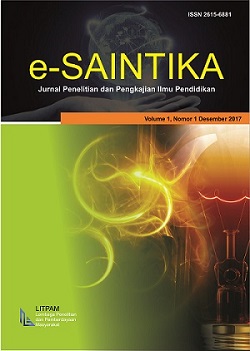
Jurnal Penelitian dan Pengkajian Ilmu Pendidikan: e-Saintika
Yazarlar: ["Ikanyeng Prince Ramonyai", "Michael Lebogang Marumo", "Melikhaya Skhephe", "Martha Matashu"]
Konular:-
DOI:10.36312/esaintika.v6i3.703
Anahtar Kelimeler:Transformation,Decolonisation,Curriculum Development,Higher Education,Challenges
Özet: Globally, the universities are recognized as the centres of higher learning, which are considered as expedient agents of development in the nation building. Curriculums determine the skills and knowledge that will be obtained from the qualification, and these are vital in the progress and transition of one’s life. However, in South Africa higher education requires a synergy to engage the issues of redress. In addressing apartheid legacy, transformation in higher education curriculum remains a mechanism for achieving the needed change. Although, the general purpose of higher education may change overtime, as it remains important for individuals to gain access to education. This study is premised on the belief that, the purpose of higher education is to meet the socio-economic and developmental needs of a country. As a result, this study investigated the challenges of transformation in higher education curriculum development in South Africa. A qualitative approach was employed. The finding was that institutions of higher learning in South Africa are still mired in the past, as a result, the curriculum in place isn't geared towards meeting the residents' economic needs or the country's overall social goals. Furthermore, South Africa government raced towards reforming the higher education curriculum system shortly after 1994, when the new government took control, with the primary goal of repressing everything, notably in education. The researchers recommend that effective transformation for higher education curriculum in South African institutions requires an alignment of skills and knowledge taught in universities qualifications should address the need of the society.